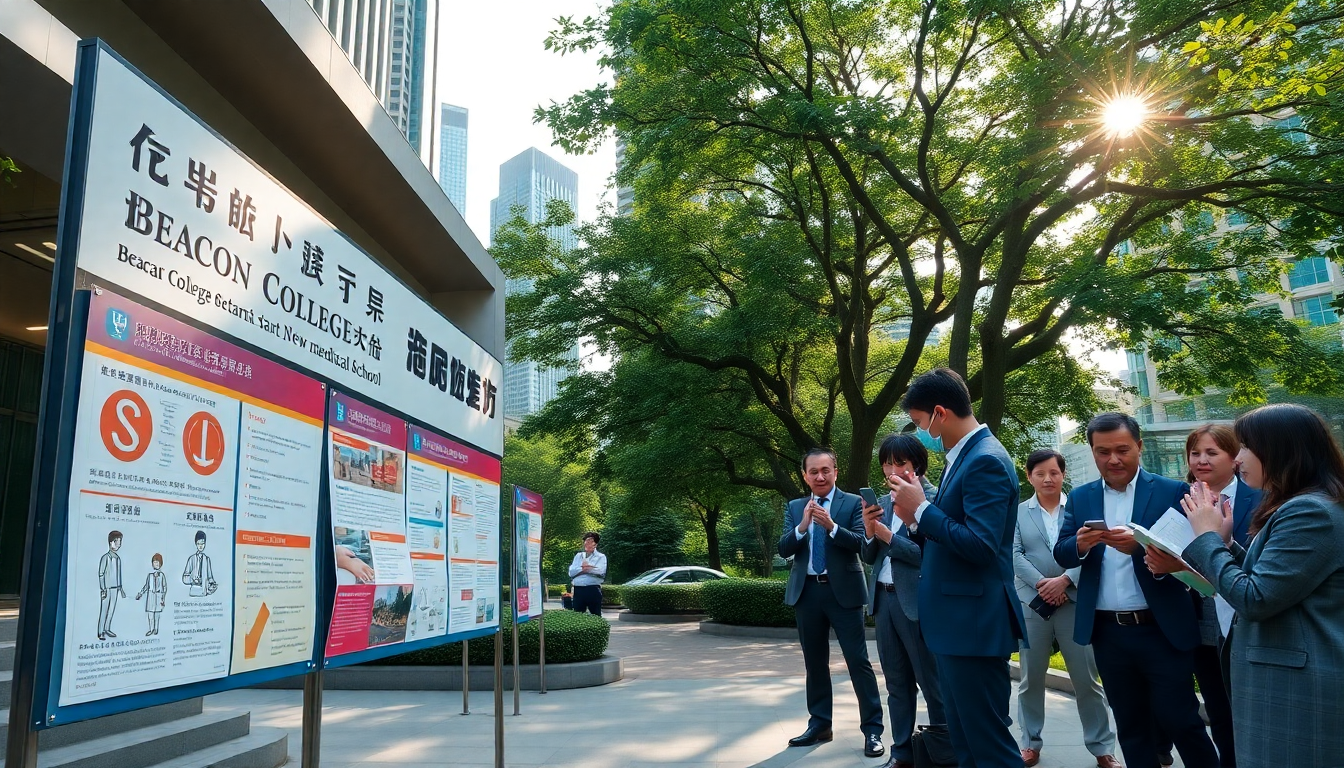Table of Contents
The recent announcement from Beacon College about launching a new medical school in Hong Kong has stirred the pot, sparking debates and confusion among many. What’s at stake? You’ve got claims, denials, and a spectrum of reactions from various players in the education sector.
The assertions made by this private education chain have been met with firm pushback from both the Hong Kong government and the Hong Kong University of Science and Technology (HKUST). So, where do we stand in the bidding process, and what does this mean for the future of medical education in the region? Let’s dive in.
The Claim and Its Context
Beacon College, a significant name in the private education landscape, recently took to social media with a bold claim: reliable sources suggest that HKUST is set to be announced as the winning bidder for Hong Kong’s third medical school.
With the policy address scheduled for September 17, excitement is palpable among stakeholders. But can we trust these claims?
In a video clip, June Leung Ho-ki, co-founder of Beacon College, painted an ambitious picture of the new medical school, stating it would boast 3,000 hospital beds.
If true, this indicates a massive investment and infrastructure overhaul should HKUST land the bid. Leung went on to assert that the school would embrace students from all walks of life, including those with degrees in non-traditional fields like music.
Sounds innovative, right?
However, this broader access to medical education raises some pressing questions. How prepared would these students be? The idea that individuals without a solid science background could gain admission challenges the conventional norms of medical training and opens up a dialogue about the future of healthcare education in Hong Kong.
Official Responses and Their Implications
In light of Beacon College’s claims, both the Hong Kong government and HKUST swiftly issued statements, firmly denying the assertions made in that social media clip. They branded these claims as ‘groundless,’ highlighting the critical need for accurate information in discussions about educational institutions and public policy. This denial doesn’t just point to misinformation; it also underscores the competitive landscape of Hong Kong’s education sector, especially when it comes to launching new programs aimed at addressing the increasing demand for medical professionals.
The government’s involvement in this matter signals the weight of this decision. Establishing a new medical school involves meticulous planning, resources, and infrastructure. The fact that both parties have denied these claims might hint at behind-the-scenes negotiations that haven’t yet come to light. It also emphasizes the need for transparency in decisions that have far-reaching implications for education and healthcare in Hong Kong.
As this situation evolves, everyone from potential students to educators will be watching closely to see how the bidding process unfolds. What does this mean for their futures and careers? The ramifications of this decision could ripple through public policy and healthcare delivery in the region.
Moving Forward: The Future of Medical Education in Hong Kong
The ongoing controversy surrounding the bidding process for Hong Kong’s third medical school is more than just a clash of claims; it mirrors the broader challenges and opportunities facing the education sector. With a noticeable shortage of medical professionals in the region, establishing additional medical schools could be a strategic response to this issue. But it requires careful planning and execution to ensure that these new programs uphold the highest standards of medical education.
As we approach the policy address in the upcoming months, it will be vital for all involved parties to keep communication channels open and provide regular updates to the public. Transparency will be essential in rebuilding trust among stakeholders and ensuring that students’ educational dreams aren’t derailed by misinformation or political maneuvering.
In conclusion, while Beacon College’s claims have been firmly dismissed, the conversation surrounding medical education in Hong Kong is just getting started. The outcome of this bidding process and the future trajectory of medical training in the region will be closely monitored, as it carries significant implications for both current and future generations of healthcare professionals. Will we see a shift in how medical education is approached? Only time will tell!





